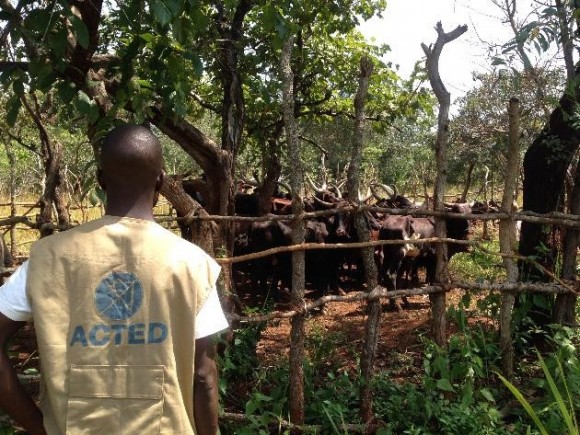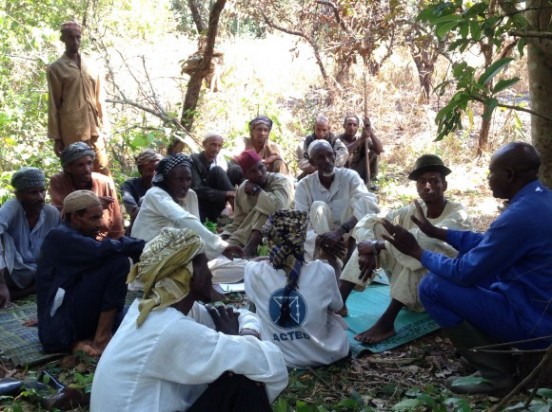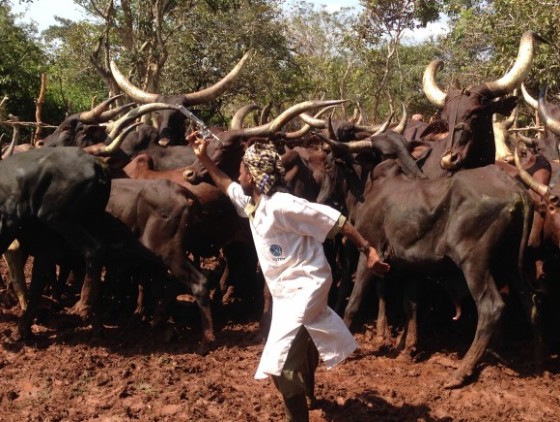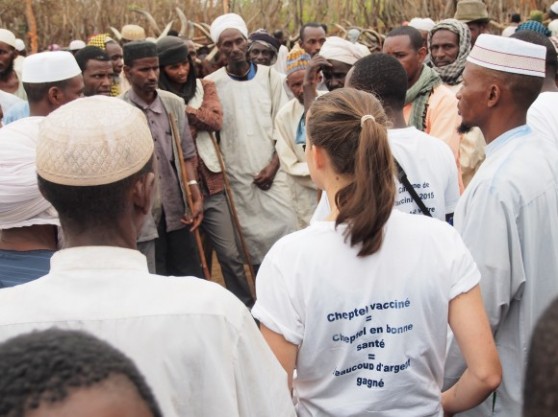Animal health is a major concern for breeders in the Central African Republic: whether sedentary of transhumant, Central Africans or foreigners, Muslims or Christians, animals are their most valuable possession. In response to the almost total absence of local animal health services, ACTED is conducting vaccination campaigns in the southeast of the country.
In the Central African Republic, livestock contributes 15% of total GDP and 45% of agricultural GDP, and is a key part of the national economy. Livestock breeders, however, are faced with attacks of armed groups who steal their animals, conflicts with farmers who deliberately burn pastures and diseases that threaten animal health.

To help them cope with these challenges, ACTED organised two livestock vaccination campaigns in Basse Kotto, Mbomou and Haut Mbomou, east of the country, with funding from the European Union through the Bêkou Fund and the Food and Agriculture Organisation of the United Nations (FAO).
ACTED uses community radios and ardos (traditional leaders of the livestock breeder community) networks to inform about the vaccination dates and locations and to raise awareness on the importance of having their animals vaccinated. The vaccination of big animals such as cattle is carried out in vaccination parks set up by pastoralists, which allow to immobilise the animals so that the veterinary auxiliaries trained by ACTED can carry out the vaccination. For small ruminants (sheep and goats), veterinary auxiliaries go from village to village to carry out the vaccinations.

Pens and sheepfolds are rare, and we have to run after the animals to be able to gather them. A team of five veterinary auxiliaries can vaccinate up to 1,000 cattle in one day, but usually not more than 200 small ruminants.
The last vaccination campaign was completed at the end of February, with over 115,000 vaccinated cattle and 21,000 sheep and goats. Some 3,100 breeders in total will thus have healthier animals.

Conflicts between livestock keepers and farmers, and conflicts related to natural resources management in general, are one of the many components of the crisis that currently affects the country. These complex issues constitute a major challenge for the humanitarian response. With this innovative project, ACTED seeks to create maximum synergy between its actions, which all converge towards one goal, reducing the vulnerability of rural communities in the east of the Central African Republic.

These two vaccination campaigns are part of a wider programme funded by the European Union, amounting to 495,000 euros, through the Bêkou Fund. This programme, which was launched in November 2015 and will last until July 2017, has also enabled to restore veterinary pharmacies and slaughterhouses, and to train butchers in order to relaunch the livestock-meat sector in the area.

 Le présent article relève de la seule responsabilité d’ACTED et ne peut aucunement être considéré comme reflétant le point de vue de l’UE.
Le présent article relève de la seule responsabilité d’ACTED et ne peut aucunement être considéré comme reflétant le point de vue de l’UE.